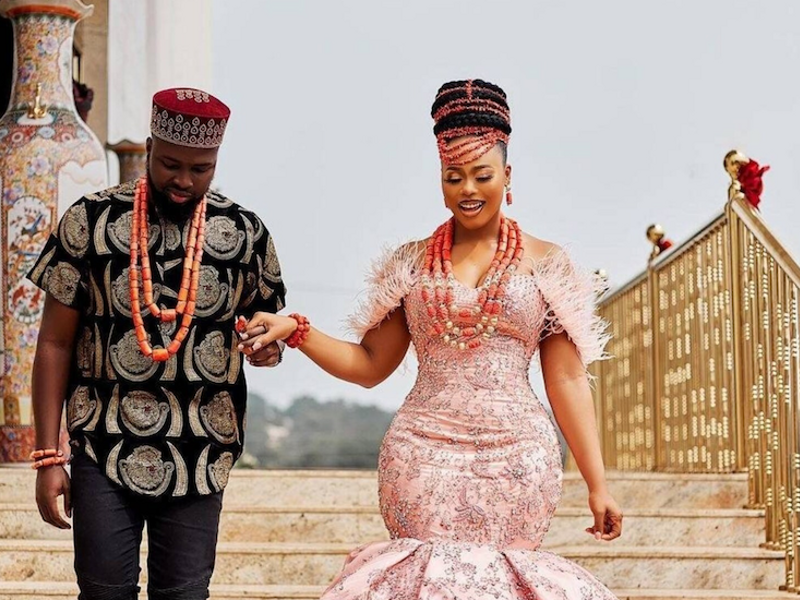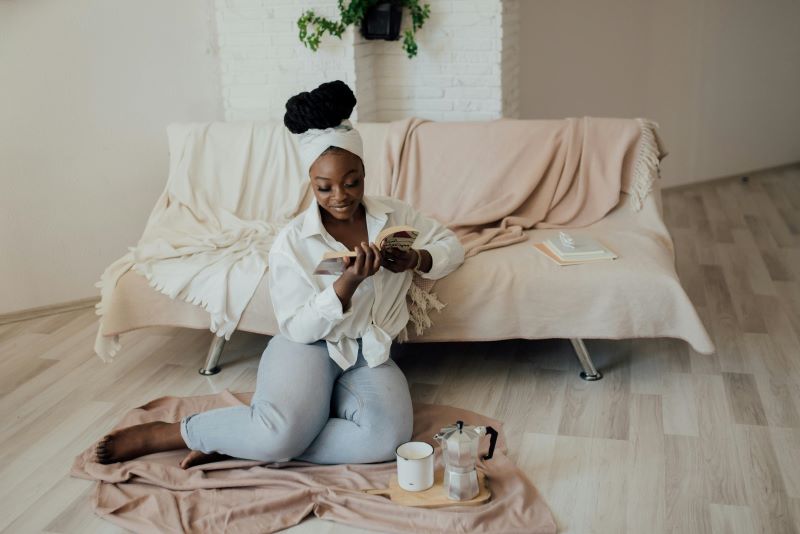Igbo wedding attire by Gochiafrica on Etsy
Igba Nkwu Nwanyi is the Igbo traditional marriage ceremony celebrating love. Most Igbos in the South Eastern part of Nigeria see Igba Nkwu Nwanyi (woman’s wine carrying) as the culmination of several months of traditional rites that are expected to have taken place before the groom along with his family and representatives of his community visit the bride’s family (including external family) in the presence of community elders. Igba Nkwu is the occasion that finally joins an Igbo man and woman as husband and wife.
Prior to this wonderful ceremony, the couple is considered to only be dating irrespective of whether they have declared their consent to each other until a formal declaration is made to the father of the bride through a process called Ikuaka (knocking).
Ikuaka is the first stage of the marriage process. When the groom informs his father of his intentions of marrying to a certain lady, the father in turn informs the eldest male-figure of his kinsmen or umunna as it is popularly known. What follows next is a discussion between the fathers for the date of the marriage; the father of the bride is now obligated to inform his kinsmen that a suitor was coming to ask for the hand of his daughter in marriage.
With the date agreed to and fixed, the groom along with his parents and a small select group of representatives from his Umunna, pay a visit to the home of his bride-to-be. At the event, the father of the groom explains the reason for their visit and their intention to marry one of their daughters.
After the customary welcome of the visitors and conversations between family representatives, the bride, who at this point is absent from this meeting, is then summoned by her parents and asked if she knows the groom; the intention of their visit and whether she consents to his marriage proposal. If she consents, then kola nuts are presented. And in a show of goodwill, the family of the groom presents small gifts to the family of his bride along with presents from their representatives

Image: Newlywed couple celebrating. Source: UMU Igbo Unite
The next step is to do a background check on the history of each family without the knowledge of the other. In the Igbo culture, it is referred to as Iju ese (Discovery of family history and background). In this situation, none of the parties is aware that such action is being taken. The purpose of Iju ese is to confirm that there is no negative history within each family tree that would present an embarrassment to any of the families or destroy the marriage of the couple
In the event the inquiries went well with no issues discovered, a date is fixed for the Imego (payment of bride-price) and in most cases, both the Imego and Igba Nkwu Nwanyi are done on the same day.
However, before the date, the groom is handed a list of items that are required by tradition from him to present to the umunna. On the day of the marriage, the groom comes with his family and friends along with the items and presents them to the umunna. From thereon, a select group of representatives of both families meet in a room to discuss the bride-price which is often miniscule. At this time, the father of the bride admonishes the groom to take good care of his daughter.
Once the negotiations are concluded, both parties rejoin the other guests who have gathered for the Igba Nkwu Nwanyi celebration. This is the stage where the bride is handed a cup of wine and asked to hand it over to the man she has chosen as her husband. The bride and the groom then kneel before their parents to receive prayers for a blessed union.

Okechukwu Nzeribe works with the Onitsha Chamber of Commerce, in Anambra State, Nigeria, and loves unveiling the richness of African cultures.
nextquestservices@gmail.com





